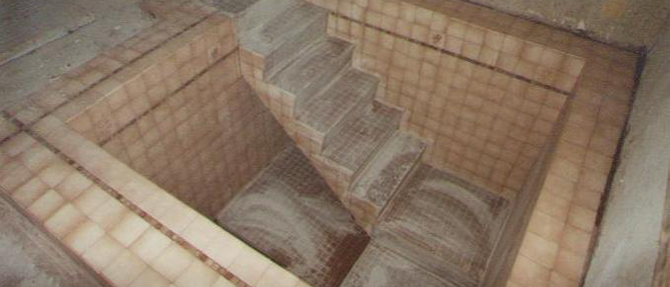
Rabbi Aryeh Ben David
Founder and Director of Ayeka: Center for Soulful Education
I felt like a shattered piece of glass. Intact, but splintered into thousands of pieces.
It was the moment of emerging from my first mikveh experience. Over 30 years ago, and still etched into my memory.
Broken and intact. Reconfiguring, changed. Putting myself back together into a new permutation. Renewed.
Immersion is easy to do in a mikveh. Full connection is the key to purification. I was naked vulnerability. I was open to allowing my life to fracture and be rearranged. I was full of dreams of a new and more pure version of myself.
How can we bring this model of immersion, purification, and renewal into a learning environment? How can we fully ‘dip’ into the waters of Torah? How can we bring nakedness and vulnerability into an ostensibly mind-centered activity?
I would like to propose a simple 4-step process that can offer us an immersion in our learning and teaching:
1. Listening
2. Talking
3. Talking
4. Listening
Step 1: I listen.
I listen for a line or section in the source that deeply resonates within me. I am open and exposed in front of the text. I allow the words to flow over me. What line was written just for me, for right now? I may have to read the text again and again. There are many who have a custom of dipping in the mikveh 7 times. Sometimes we need to immerse ourselves again and again until we are purified; sometimes we need to immerse in the texts again and again until they penetrate through our skin. I don’t proceed until something in the learning has touched my inner self.
Step 2: God talks.
I imagine God talking to me through the chosen text. What is God saying to me through these words? The text is an invitation to listen to God’s voice. It is not the water that purifies – water is the messenger from the heavens to connect me to something beyond. So too these holy words – they are messengers from heaven to connect me to God. What is God conveying to me, right now? What message do I need to hear?
Step 3: I talk.
God has opened the conversation. Now I respond. I open my mouth and talk openly about where I am and what I need to move closer to God, to live more in the Image of God. I don’t think it or reflect on it – I need to talk it aloud.
I see my fractured life and accept it. I verbalize what I am struggling with and how these verses address my situation. I articulate how these verses can heal and purify me. I bless and thank God for the opportunity to grow.
Step 4: God listens.
After talking, I sit with myself for a few moments. The early masters would sit for a few moments after praying, being with the moment. The ‘being’ allows for the broken pieces to reconfigure and reunite. It is a healing moment of being. I am emerging from the mikveh of my learning and am now becoming a new version of myself. Only God can rearrange the pieces. Only God can purify. The mikveh is a birthing process. I am pure because I am no longer stuck in my former self. I have transformed into a new self. This is the mikveh of learning – of being with my new self, of affirming that I can perpetually transform myself to become closer to God.
Open, naked, vulnerable, and seeking a personal connection with the Beyond. These are the prerequisites for full immersion – in a mikveh or in a learning setting.
